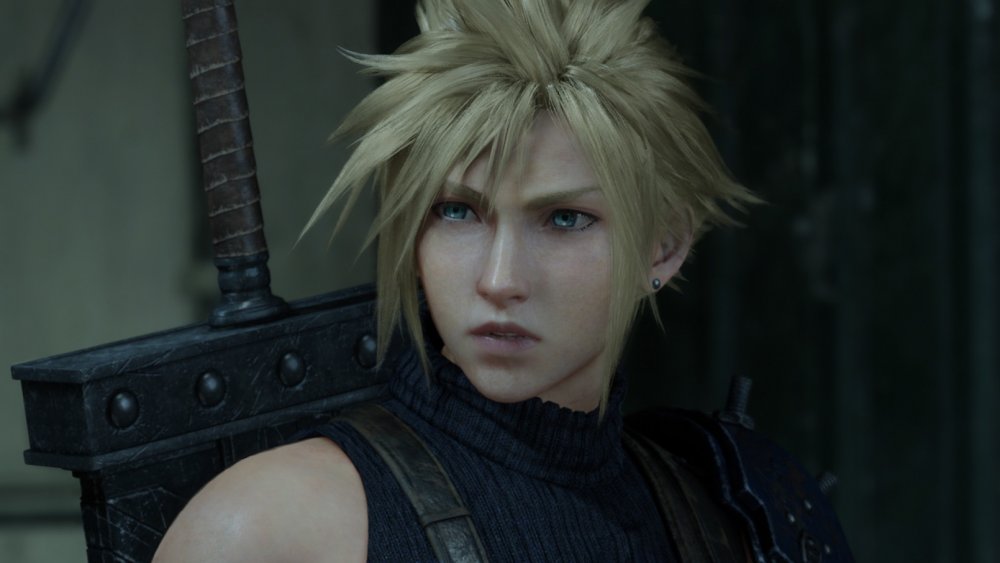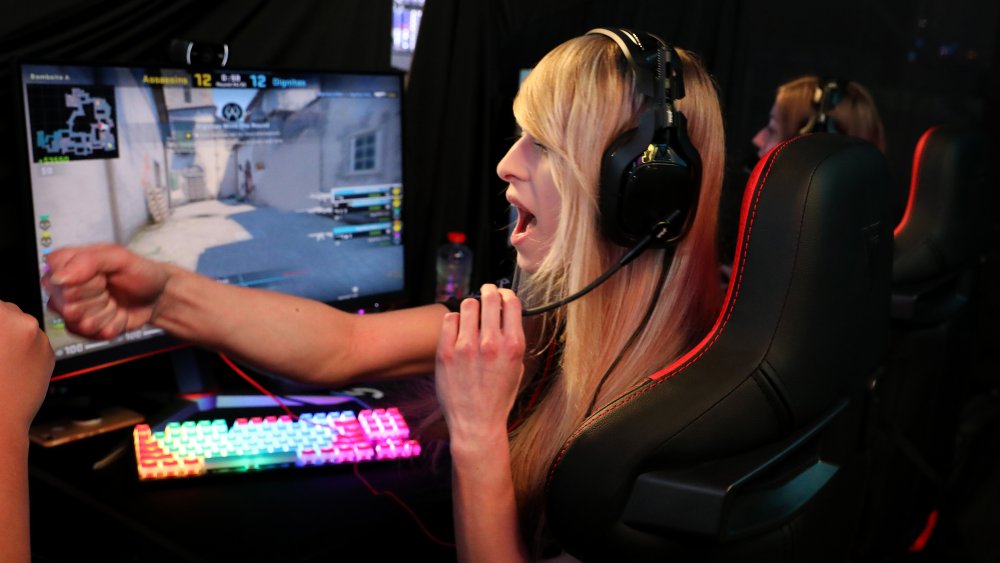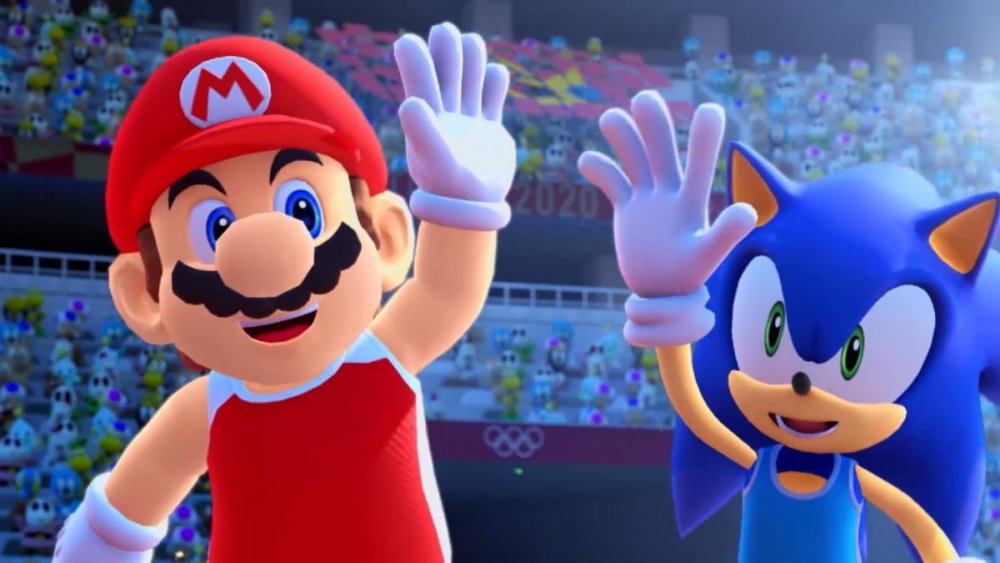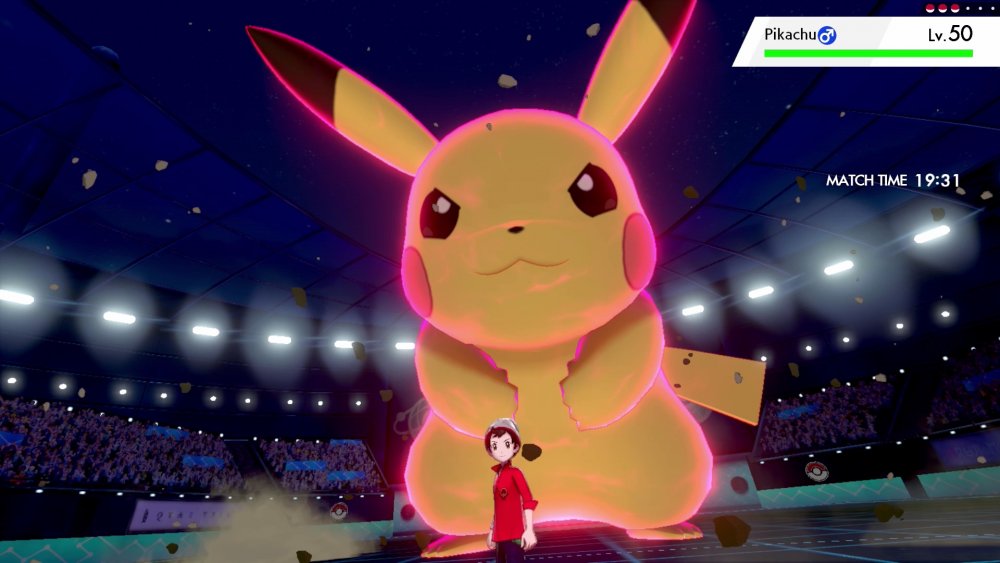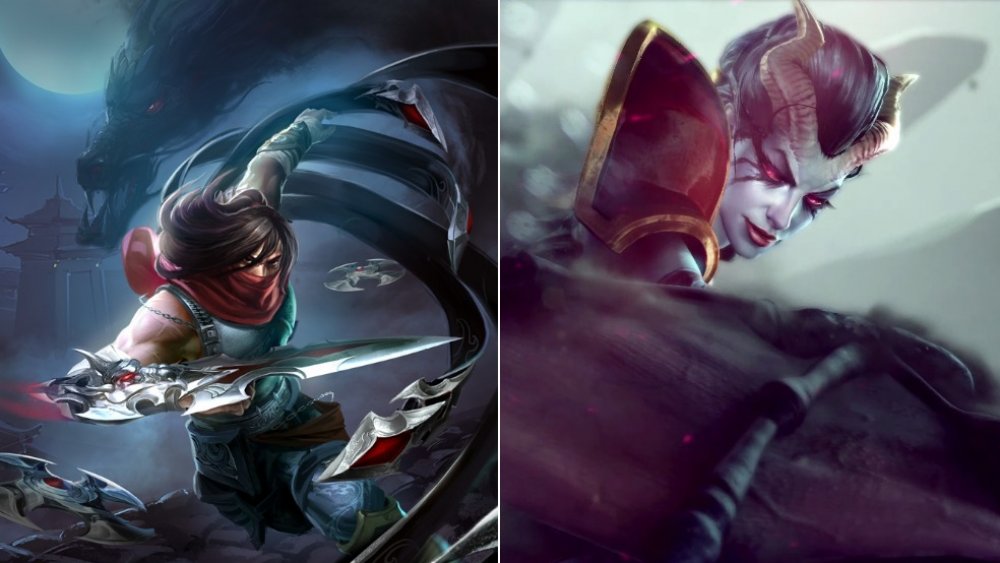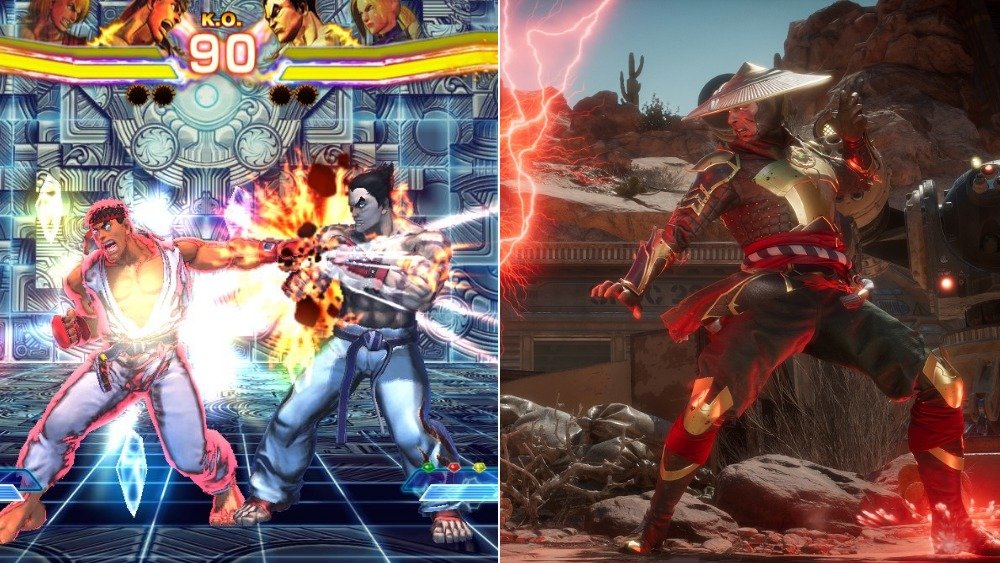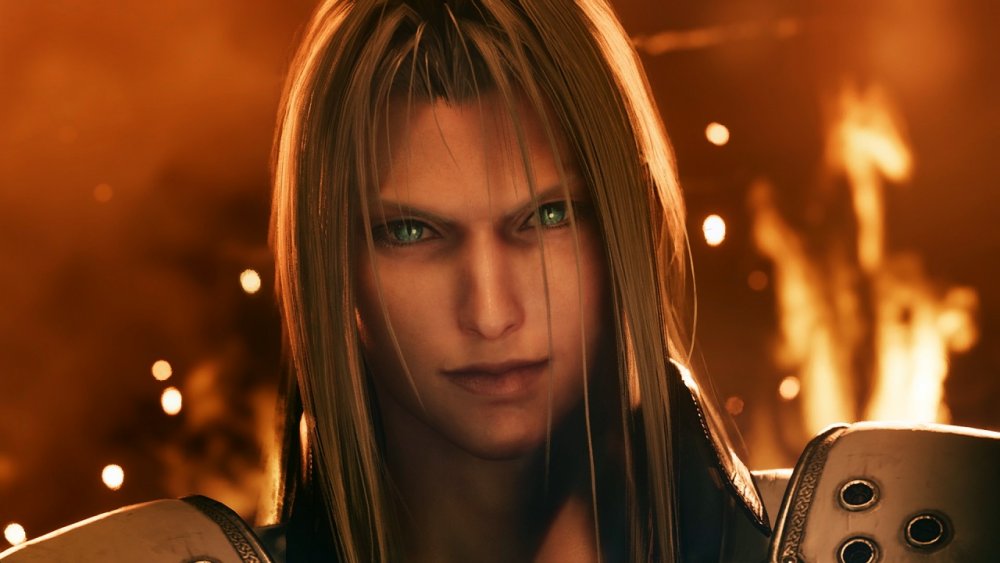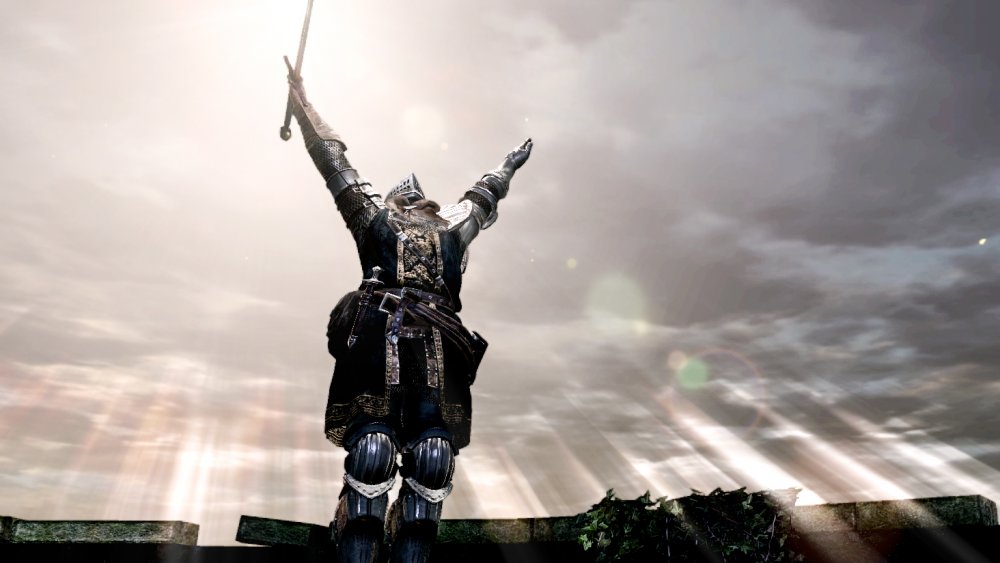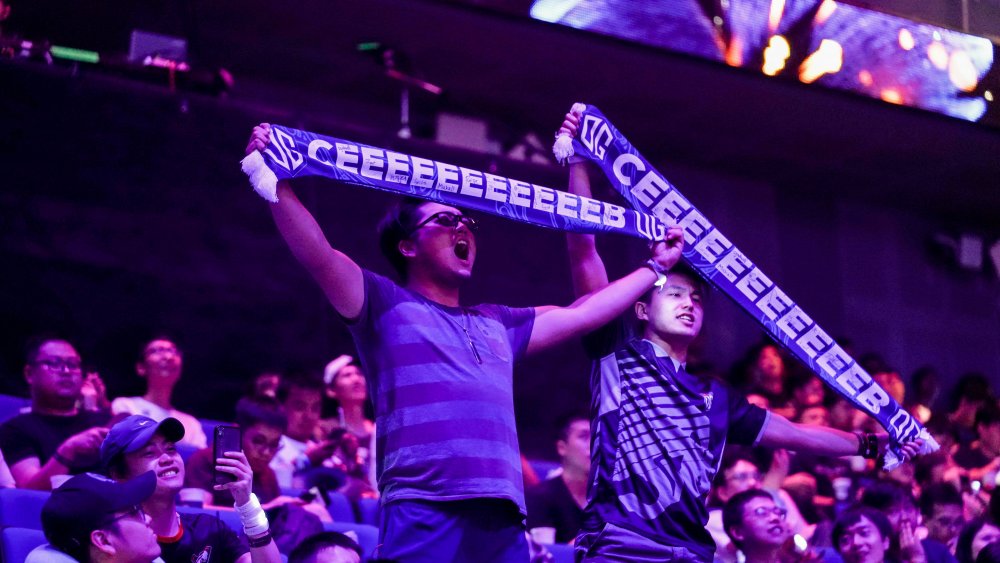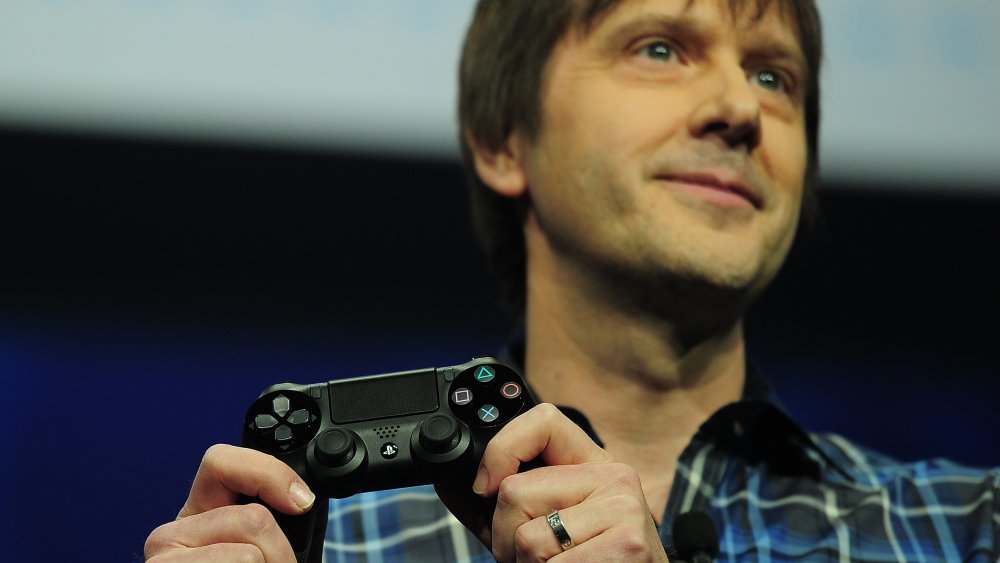Choices That Will Divide Gamers Forever
There are some questions that just have no right answers. No matter how long the debate lasts, there will always be valid points on both sides, and those who champion for their particular choice will never back down.
There are a few areas where these types of debates can get really heated, and the area of gaming is one of the most divisive. Gamers are extraordinarily picky and opinionated, whether it's about their settings, how best to run certain things, or which games are the best type of a certain genre. Venture onto any forum, and you're bound to see people stirring the pot with polls and open questions. There will be comment wars, and someone will inevitably be called names because they like the English voice actors of a Final Fantasy game better than the Japanese voice actors.
Let's take a look at some of those classic gamer debates -– the ones that have no true wrong answer. Which side do you fall on?
Inverted or no?
This argument is great, because both sides feel like the other is completely stupid and unintuitive. The non-inverted side says, logically, "Why would you push down on the stick to look up, and vice versa? That makes no sense, fool!" Pro-inverted players say things like "Old-school games all had inverted controls, and the joystick matches your head movement in real life if you were looking up or down, you dummy!"
To put it in scientific terms, here's a neuroscientist explaining the difference to The Guardian.
"From a cognitive perspective, players who don't invert are 'acting as' the avatar, with movement/steering originating from between the avatar's eyes, controlling the camera," the neuroscientist said. "Players who invert are 'acting on' the avatar, with the controls either behind or on top of the head controlling the avatar."
Most studies seem to suggest that this preference comes from the first games you played, but gamers can adapt to the other setting with practice, like people who break an arm and learn to operate with the other. So maybe ease up on the name calling?
Keyboard and mouse or controller?
The keyboard and mouse vs. controller debate from a larger argument of "PC or console," and cross-platform play has led to some serious discussion about how to address this issue. As Online Tech Tips points out, game companies are having to do some serious thinking in how to handle these multi-platform lobbies, especially in shooters like Fortnite or Call of Duty. These games have millions of players across every possible platform, so striking a balance is key.
It's tough for anyone to argue that you will play better on a controller. It's hard to be as responsive when aiming, and you only have a certain number of buttons you can press at the same time without contorting your hand in ridiculous ways. A keyboard and mouse offers much more precision and ways to customize your bindings. However, to help keep things fair, many developers add an "aim assist" for those using controllers.
This has caused a massive amount of contention, especially in competitive circles. Eventually, esports will probably have to consolidate on one input method. For now, the debate rages on.
The console wars
The idea of competing fandoms is a long one, and it isn't relegated to just the obvious arenas like athletics. There's Coke vs. Pepsi, Ford vs. Chrysler vs. GM and, of course, Sega vs. Nintendo. Or PlayStation vs. Nintendo. Or PlayStation vs. Xbox. You get the idea.
Gamers love to argue over their system of choice. Early on, Nintendo held all the cards with the original NES dominating the console market. The Super NES was supposed to continue that streak, but then a plucky hedgehog and his "Blast Processing" burst onto the screen, kicking up a storm in the process. The console wars were born.
You can argue about the merits of exclusive titles. You can argue about statistics and specs of your preferred systems. And it all makes sense! Especially for a lot of kids, their video game console is one of the most expensive things they own. It's human nature to defend its merits and the massive amount of time and money they've put into it. As for the console wars, they continue on to this day (though with Sony, Microsoft and Nintendo now), and you'll still find plenty of forum posts mocking all sides.
Who is the best starter Pokemon?
"Are you a boy? Or are you a girl?"
Professor Oak is a lot of things – including Ash's dad, probably – but particularly observant is not one of them. How else could you explain giving a weapon of mass destruction to a child and then sending them out into the world? That weapon is, of course, a Pokemon. And every Pokemon title starts with one of the hardest decisions you'll ever have to make as a gamer: which starter will you pick?
This choice is important for a lot of reasons. Your starter will evolve into one of your strongest fighters as they hit their later evolutions. Their type will give you advantages and disadvantages in certain areas of the game. On top of all that, a huge part of Pokemon's draw is the attachment you feel to your favorite pocket monsters. Which critter do you want to spend the most time with: dinosaur plant, fire t-rex or bipedal turtle? We all know the right answer.
Every time a new generation of Pokemon releases, people pick sides and defend their starter of choice. It helps the Pokemon titles resonate that much more.
Dota vs League of Legends
Multiplayer online battle arenas, or MOBAs, are one of the most popular genres for anyone who likes a little competition in their video games. Over time, many games have tried (and generally failed) to break into the MOBA market, which continues to be dominated by two of the biggest games in the world: Valve's Dota 2 and Riot's League of Legends.
Both games splintered from the Warcraft 3 mod called Defense of the Ancients (if you ever wondered why it's called "Dota," there you go) and both feature very similar gameplay mechanics. In general, League of Legends is seen as a bit more accessible and user friendly than Dota 2 (though it's still incredibly complex). However, fan bases of both games have been bickering for years about which MOBA is superior. Both have extremely competitive professional scenes with strong foundations, with major viewership numbers and prize support.
Whether you prefer Dota 2 or League of Legends, it seems doubtful you've got enough time or energy to play both. The good news is that these games have been around long enough that neither one appears to be going anywhere.
Street Fighter vs Tekken vs Mortal Kombat
Fighting games take a long time to master. To compete on the highest level, you don't just need to know what your fighter is capable of — you need to know what every other fighter is capable of and how they interact with one another. Some gamers can master multiple titles, but if you want to get to a high level, you need to specialize. And the fighting game community is very adamant about which titles are best.
We're generalizing here, but things tend to break down like this. Street Fighter is the mainstream one, easy to pick up and get the hang of, but with tons of intricacies to learn. Tekken is the toughest, with long, intricate combos demanding high skill and precision. Mortal Kombat is the crowd pleaser — a big, bloody spectacle that actually sits on a strong foundation of juggle-based combos. And sure, you could probably cram a few other fighting game franchises into this debate — someone might ask "What about Soul Calibur?" — but we'll just stick with these three for now.
What's the best Final Fantasy game?
Ah yes, the classic question: "Why are there so many sequels if each one is called Final Fantasy?" We get it. Go buy tickets to another "The Who Farewell Tour: This Time We Really, Really Mean It." Jokes aside, the original Final Fantasy first released back in 1987, and the series has been going strong as one of the premiere RPG franchises ever since. With so many big titles to choose from, one of the longest-running debates in gaming is "Which one is best?"
And nearly everyone would love to tell you their opinion.
For some, the glory days of Final Fantasy can be traced to the Super NES. Final Fantasy 6 (or 3, depending which numbering system you're using) is a frequent pick of the nostalgia crowd. Some cheer for the PlayStation titles; Final Fantasy 7 was a massive success, and 8 refined a lot of what made that game great. Some point to Final Fantasy 9 as a marriage between the old school and the modern. Others sing the praises of the upgraded combat systems in more recent titles.
There's no correct answer here, but if you're a Final Fantasy fan, you probably have a favorite you'll defend to your death.
Should games have 'easy' modes?
This can be one of the most frustrating refrains in gaming to people who are trying to get better at games. They are literally trying to get good, asking for some advice. Inevitably, someone will simply reply with "git gud." Thank goodness for "easy" modes, right? Unfortunately, some aren't fans of them.
This mindset has been around for a long time (the fighting game community has been especially brutal to newcomers over the years), but seems to have regained some traction with the influence games like Dark Souls have had on development. Some players want to be able to enjoy the story and atmosphere of games without devoting time and energy to mastering difficult sections. Some developers acquiesce, offering easier difficulties or other ways for these players to experience the game. This makes some of the more skilled gamers in the world angry.
To those in the hardcore community, you should have to improve your skills in order to unlock these aspects of the game. For those gamers, the real joy comes from the improvement and mastery of the game, and an easy mode is "not only cheating the game, but yourself." Both sides have valid arguments, and the debate between the two isn't likely to go away any time soon.
Are esports actually 'sports?'
Defining which competitions are and are not sports is a classic "no correct answer" debate. Even outside the realm of video games, people will argue about whether or not things like NASCAR, fishing, bowling and poker are sports. After all, they are all shown on ESPN, right? On that note, esports are gaining massive amounts of popularity and viewership (and all the sponsorship money that comes with that). There are college scholarships and professional leagues, too.
So, do esports count as true sports? Well, the answer is complicated, and it really boils down to semantics.
The answer depends on your definition of sports, and how you view the skill sets needed to succeed in gaming. Is perfecting a complex series of inputs on a controller akin to learning the mechanics of throwing a baseball a certain way? Some would argue yes. Others, however, are totally dismissive of esports as true sports. Eventually, an answer will probably emerge in the form of "Do they make more money if we call them a sport or something else?" Until then, the debate continues.
How do you hold a controller?
This one is admittedly a bit odd, as we would be willing to venture that at least 90% of people hold their controller the same way. It's the way we see in commercials on television, and in real life when you hand a controller to pretty much anyone. But did you know that there are other ways people grip their gamepads?
PC Gamer put together a little piece on the differing ways people hit the buttons, and there are some bizarre ones. Some examples seem a bit dubious, but others look legit and have their champions. For instance, some people use their right pointer finger to hit the face buttons, so they don't have to remove their thumb from the right stick. There's also a debate about whether to use your pointer finger for each shoulder button, or to use a separate finger for each (pointer and middle). There's even a bizarre method that uses the right thumb on the face buttons and the right pointer on the joystick. Get out of here with that one.
A lot of this probably boils down to how you learn a game. And honestly, if your preferred method of holding a controller works, who can argue with the results? Even if you're wrong, which you are.

